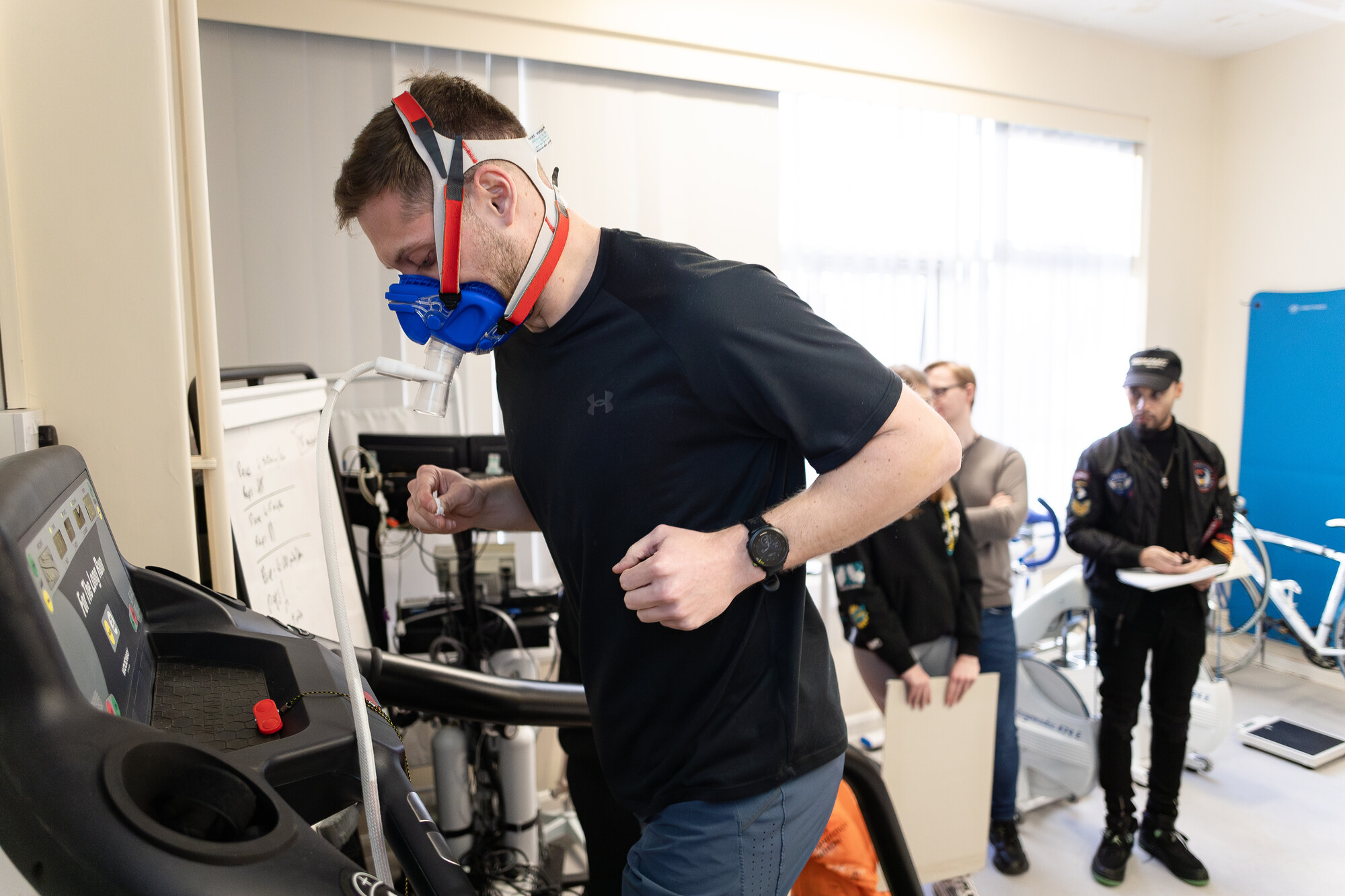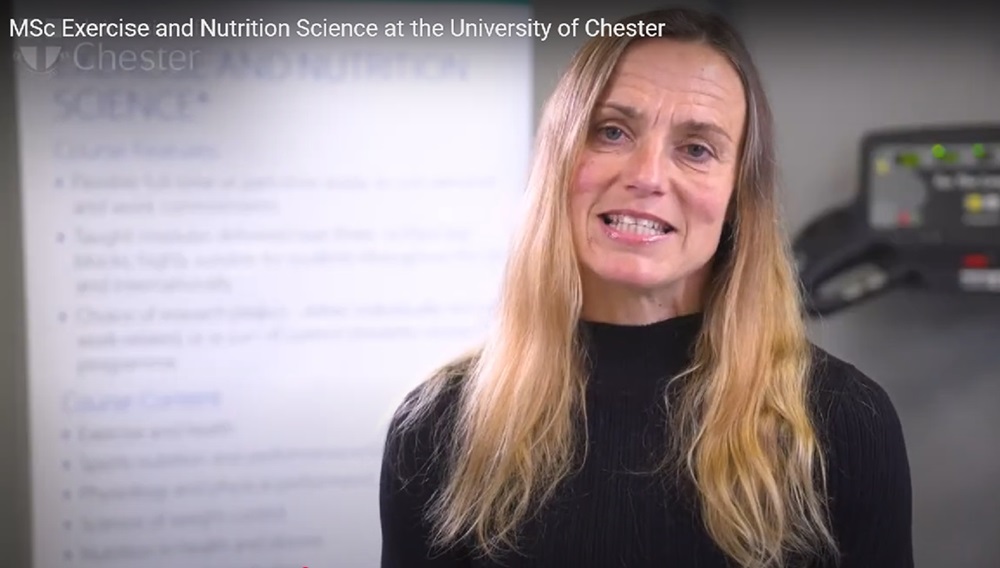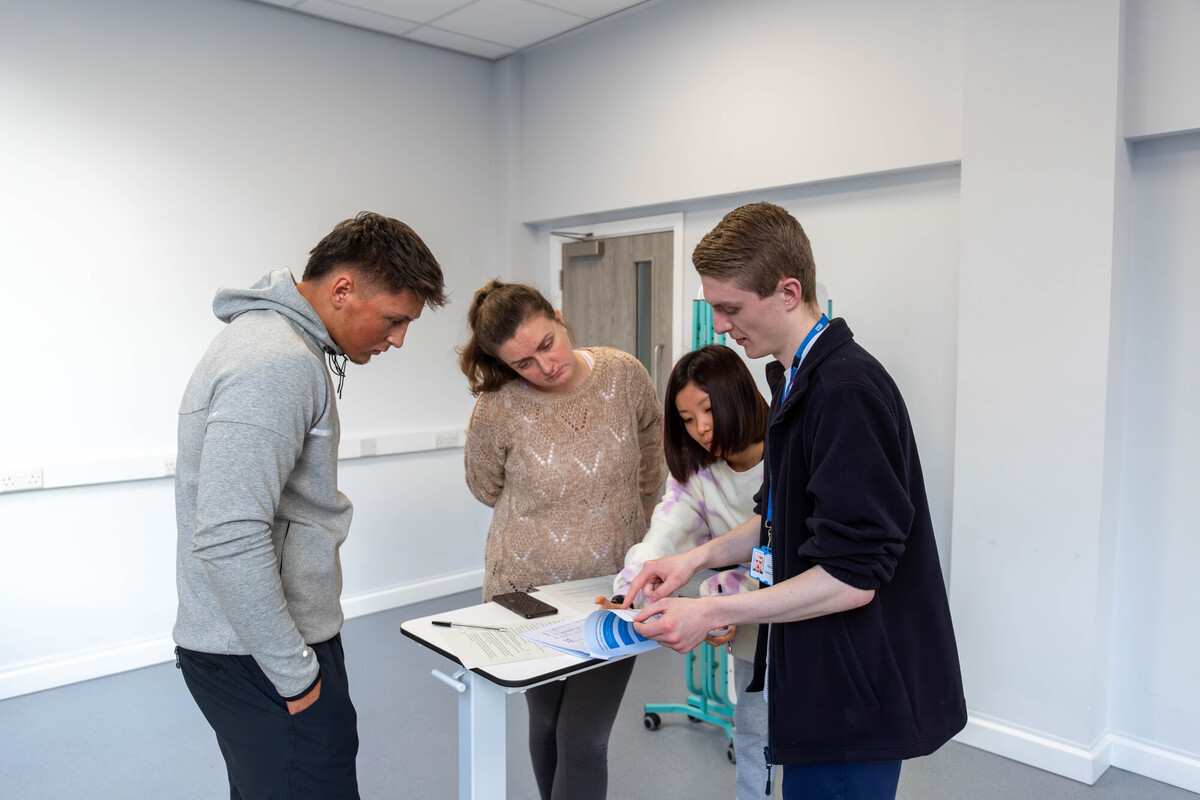Exercise and Nutrition Science MSc

This course is for those who wish to develop practical skills and apply their expertise in exercise and nutrition science; it is aimed at health professionals and graduates who want to extend their knowledge in this popular area of study, and for those who want to make a career switch to work in the field of exercise and nutrition.
The course was established in 1993, and its content is mapped against the competencies of nationally recognised professional bodies such as the Sport and Exercise Nutrition Register (SENr), Register for Exercise Professionals (REPs) and the International Society for the Advancement of Kinanthropometry (ISAK). It is characterised by its multidisciplinary approach to the study of nutrition in relation to exercise and sport, and is academically stimulating, underpinned by evidence-based practice.
A key feature of this course is the application of theory to practice and in addition to the lectures, there are practical sessions, workshops, and the opportunity to undertake a placement within a health, sport, or exercise setting. The MSc is delivered by a team of leading academics and both national and international leaders in exercise and nutrition. This enables graduates to leave with the most up-to-date and relevant knowledge in the field.
Students that do not wish to study the full MSc programme, can choose to study to a PGDip/PGCert level instead.

MSc Exercise and Nutrition Science at the University of Chester
What You'll Study
The modules aim to enable you to develop a critical knowledge and understanding of fundamental and contemporary issues in relation to physical activity, and health and nutrition in health and disease, as well as applying these principles to sporting populations. A variety of module options means the course can be tailored to suit your needs. Lectures are complemented by practical sessions in well-equipped physiology (BASES-accredited), biology and food nutrition laboratories.
The information listed in this section is an overview of the academic content of the course that will take the form of either core or option modules and should be used as a guide. We review the content of our courses regularly, making changes where necessary to improve your experience and graduate prospects. If during a review process, course content is significantly changed, we will contact you to notify you of these changes if you receive an offer from us.

How we teach at the University of Chester
The MSc Exercise and Nutrition course is delivered in person, primarily through seminars, lectures and workshops and you also will have the opportunity to take part in practical laboratory sessions. You will experience an interactive and collaborative learning environment, often working alongside your peers and with staff to develop the key competencies in lifestyle medicine.
The course is comprised of a series of taught modules each delivered in 3 or 4-day blocks followed by a period of directed learning and the submission of the assessment as set out in each module. This is designed to support all students, but particularly those balancing their studies with personal and work commitments.
A diverse range of teaching and learning modes are utilised for this course (lectures, seminars, group activities, case studies, student presentations, laboratory classes and practical activities). Independent learning following the taught element is a key feature of the programme and is supported through individual tutorials (in person or online) and assessment workshops.
Teaching is delivered by experienced, well-published academics and practitioners in the subject. All of whom will offer you diverse perspectives and utilise a range of materials and teaching methods to ensure that your individual learning needs are catered for.
The range of assessment methods on the course represents different types of tasks that you are likely to encounter in the workplace. These include assessments in the form of practical lab assessments, lab reports, written work (both long and short form e.g. reports, reflections), portfolios and presentations. Assessments on the course are also integrated into the learning process, enabling consistent application of knowledge to occur. Course staff continuously review the methods of assessment utilised within modules, guaranteeing authenticity and currency within the context of post-graduate level employment.
On this course, you’ll spend time out on placement where you’ll apply what you have learnt to real scenarios in the workplace, giving you genuine experience and insight that will prepare you for your future career.
Your Future Career
Job Prospects
Graduates of the MSc Exercise and Nutrition Science course are well equipped for careers across a wide range of sectors, including sport, health, research, and education. The course develops the practical skills and scientific knowledge needed to thrive in roles that focus on improving performance, promoting health, and supporting behaviour change.
Our graduates have gone on to work in areas such as:
- Sports nutrition
- Exercise and occupational physiology
- Corporate health and wellness
- Weight management and health promotion
- Cardiac rehabilitation
- Teaching and lecturing
- Research in academic and applied settings
This course opens the door to a variety of rewarding career paths, both in the UK and internationally.
Careers Service
The University has an award-winning Careers and Employability service which provides a variety of employability-enhancing experiences; through the curriculum, through employer contact, tailored group sessions, individual information, advice and guidance.
Careers and Employability aims to deliver a service which is inclusive, impartial, welcoming, informed and tailored to your personal goals and aspirations, to enable you to develop as an individual and contribute to the business and community in which you will live and work.
We are here to help you plan your future, make the most of your time at University and to enhance your employability. We provide access to part-time jobs, extracurricular employability-enhancing workshops and offer practical one-to-one help with career planning, including help with CVs, applications and mock interviews. We also deliver group sessions on career planning within each course and we have a wide range of extensive information covering graduate jobs.
Entry Requirements
2:2 honours degree
The course is open to applicants with a minimum of a 2:2 honours degree in a related subject area, or equivalent professional qualifications. Consideration will also be given to applicants with relevant work experience, background knowledge and skills.
2:2 honours degree
The course is open to applicants with a minimum of a 2:2 honours degree in a related subject area, or equivalent professional qualifications. Consideration will also be given to applicants with relevant work experience, background knowledge and skills.
Please note, some programmes have special entry requirements.
English Language Requirements
For more information on our English Language requirements, please visit International Entry Requirements.
Fees and Funding
£9,090for a full-time course (2026/27)
Guides to the fees for students who wish to commence postgraduate courses are available to view on our Postgraduate Taught Programmes Fees page. Here you will also find information about part-time fees and project/placement year fees.
£15,500for a full-time course (2026/27)
The tuition fees for international students studying Postgraduate programmes in 2026/27 are £15,500.
Please note: For MSc programmes where a placement or project year is undertaken there will be an additional charge of £2,900 for the placement/project year (due at the start of the second year of the course).
The University of Chester offers generous international and merit-based scholarships for postgraduate study, providing a significant reduction to the published headline tuition fee. You will automatically be considered for these scholarships when your application is reviewed, and any award given will be stated on your offer letter.
For more information, go to our International Fees, Scholarship and Finance section.
Irish Nationals living in the UK or ROI are treated as Home students for Tuition Fee Purposes.
Your course will involve additional costs not covered by your tuition fees. This may include books, printing, photocopying, educational stationery and related materials, specialist clothing, travel to placements, optional field trips and software. Compulsory field trips are covered by your tuition fees.
The University of Chester supports fair access for students who may need additional support through a range of bursaries and scholarships.
Full details, as well as terms and conditions for all bursaries and scholarships can be found on the Fees and Finance section of our website.







